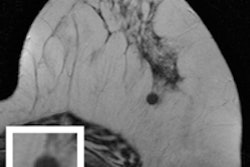Dear AuntMinnie Member,
In a new study published this week in the Lancet, Australian researchers have found that telling women about negative aspects of mammography -- such as overdiagnosis -- makes them less likely to want to undergo breast screening.
Researchers from the University of Sydney created a clinical decision aid designed to give women information about both positive and negative aspects of screening mammography. The group then tested the effect of the decision aid on women's attitudes by having them read the information and then assessing their interest level in getting screened.
The aid included information about false positives and in particular overdiagnosis, which has become the bête noire of many skeptics of screening in the health policy set. Not surprisingly, women who read the decision aid subsequently expressed less interest in undergoing screening than women who read a decision aid with no information about overdiagnosis.
Are the results surprising? Maybe not to any breast imaging expert, but the researchers believe the findings are welcome news if they create a more informed patient population. Read more by clicking here.
In other women's imaging news, German researchers found that breast MRI can be useful for working up suspicious lesions characterized as BI-RADS 4 on mammography or ultrasound. Learn more by clicking here, or visit our Women's Imaging Community at women.auntminnie.com.
Imaging use variation
Researchers from Brigham and Women's Hospital discovered wide variations in the use of CT and MRI in different regions of the U.S. -- variations that could influence efforts to clamp down on imaging utilization. Get the details by clicking here.
And Dutch researchers have found that diffusion-tensor MRI (DTI-MRI) could be a good tool for assessing the toll that marathons take on long-distance runners. That article is available by clicking here.



















